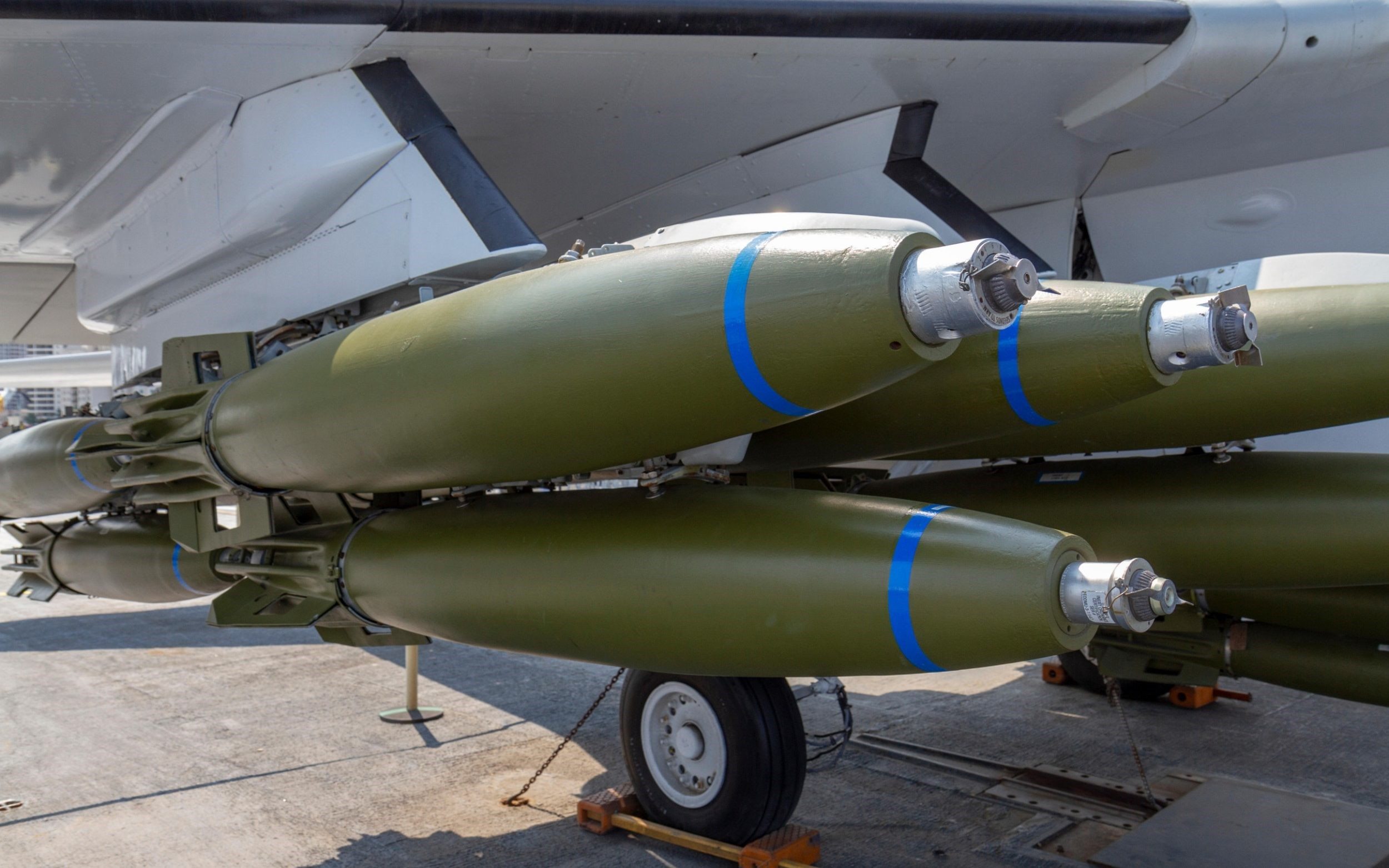
When it comes to weapons that have shaped the course of history, bombs have undeniably played a significant role. From devastating wars to acts of terrorism, bombs have the power to cause destruction on a massive scale. But beyond the grim realities associated with them, there is a wealth of fascinating and intriguing facts about bombs that are often overlooked.
In this article, we will delve into the world of bombs and explore 18 little-known facts that shed light on their history, development, and impact. From the earliest forms of explosive devices to modern-day sophisticated technologies, we will uncover the mesmerizing details that make bombs a subject of both awe and trepidation.
So buckle up and get ready to embark on a journey through time and discover the intriguing world of bombs, where intelligence and destruction collide in unimaginable ways.
Key Takeaways:
- Bombs have a long history and come in different types, from conventional to nuclear. They have a significant impact on warfare and society, causing fear and destruction.
- Bomb disposal units play a crucial role in neutralizing and safely removing bombs, protecting communities and saving lives. International cooperation is essential in preventing bomb attacks and combating terrorism.
Bombs have been used throughout history…
From ancient times to modern warfare, bombs have played a significant role in conflicts around the world. They have evolved in design and technology, becoming powerful and devastating weapons.
Bombs come in various types…
There are different types of bombs, including conventional bombs, nuclear bombs, chemical bombs, and incendiary bombs. Each type serves a specific purpose and has its own destructive capabilities.
Bombs can be dropped from the air…
Aerial bombing is a common method of deploying bombs. Aircraft such as bombers, fighter jets, and drones are used to drop bombs on targets with precision and accuracy.
Improvised explosive devices (IEDs) are a deadly form of bombs…
IEDs are homemade bombs that are often used by non-state actors and terrorists. They are designed to cause maximum destruction and casualties, making them a significant threat in modern warfare.
Bombs have been used in both military and terrorist attacks…
Unfortunately, bombs have been used not only in military operations but also in acts of terrorism. Terrorist groups often employ bombs as a means of spreading fear and chaos.
Bomb disposal units play a crucial role…
Bomb disposal units, also known as explosive ordnance disposal (EOD) teams, are responsible for neutralizing and safely removing bombs. Their highly specialized skills save lives and protect communities.
The development of bombs has led to arms races…
Throughout history, the creation of more advanced and powerful bombs has sparked arms races between nations. This has resulted in an increased focus on military technology and deterrence.
Bombs have significant psychological impact…
The devastating impact of bombs extends beyond physical destruction. They instill fear, disrupt societies, and leave lasting psychological scars on individuals and communities affected by their use.
Precision-guided bombs have revolutionized warfare…
Advancements in technology have led to the development of precision-guided bombs, which can hit specific targets with great accuracy. This reduces collateral damage and increases the effectiveness of military operations.
Bombs have been used for strategic purposes…
Bombs have been strategically employed to destroy key infrastructure, disrupt supply chains, and weaken the enemy’s capabilities. They play a crucial role in shaping the outcome of conflicts.
Bombing raids have been conducted during wars…
Bombing raids involve launching a large number of bombs on a target area. They have been used extensively in major conflicts, causing massive destruction and altering the course of battles.
Bombs have been used in political assassinations…
Throughout history, bombs have been employed as a means of political assassination. Tragically, these acts have claimed the lives of influential figures and caused political turmoil.
Bomb shelters provide protection in times of danger…
Bomb shelters, also known as bunkers, offer refuge during bomb attacks or disasters. These structures are designed to protect people from the destructive power of explosions.
Bomb detection technology is continuously evolving…
To counter the threat posed by bombs, advanced detection technology is being developed. This includes methods such as X-ray screening, sniffer dogs, and high-tech scanners to identify hidden explosives.
The defusal of bombs requires specialized training…
Defusing a bomb is an incredibly dangerous task that requires extensive training and expertise. Bomb disposal experts put their lives on the line to disarm and render explosives safe.
Cyberweapons can be considered a form of digital bombs…
In the digital age, cyberweapons are a new type of weapon that can cause extensive damage to computer systems, infrastructure, and even national security. They act as virtual bombs in the cyber domain.
Bombings have influenced advancements in defense technology…
The threat of bombings has spurred the development of countermeasures and protective technologies, such as bomb-resistant materials, blast barriers, and innovative security systems.
The prevention of bomb attacks requires international cooperation…
Given the global nature of bomb threats, international cooperation and intelligence sharing are crucial in preventing attacks and combating terrorism.
Conclusion:
These 18 facts highlight the various aspects of bombs and their impact on warfare, terrorism, and society as a whole. It is essential to continually work towards global peace and security to minimize the destructive consequences of these weapons.
Conclusion
In conclusion, bombs are incredibly powerful and destructive weapons that have had a significant impact on human history. From their earliest origins to the sophisticated devices used in modern warfare, bombs have been used as tools of destruction and as a means to exert power. It’s important to understand the complexity and danger associated with bombs and their use.
While the development of bombs has undoubtedly changed the course of warfare and global politics, it is crucial to prioritize peace and diplomacy to prevent their use and the devastating consequences they can bring. As we continue to advance technologically, it is our responsibility to work towards a world where weapons, including bombs, are no longer necessary.
FAQs
Q: How do bombs work?
A: Bombs work by utilizing various mechanisms to create an explosive reaction. This can involve the use of chemical reactions, compression, or triggering a detonator, which then sets off a chain reaction within the explosive material, causing a powerful explosion.
Q: How are bombs used in warfare?
A: Bombs are used in warfare to inflict heavy damage on targets, such as buildings, infrastructure, or enemy forces. They can be dropped from aircraft, launched from missiles, or planted as explosives by ground forces. The objective is usually to neutralize or destroy the enemy’s capabilities or create a psychological impact.
Q: Are bombs only used in wartime?
A: While bombs are primarily associated with warfare, they have unfortunately been used outside of conflict zones in acts of terrorism. Terrorist groups have employed various types of bombs as weapons to create fear and chaos in civilian populations.
Q: Are there any positive uses for bombs?
A: In certain controlled environments, bombs can be used for constructive purposes. For example, demolition experts use carefully calculated explosive charges to bring down buildings and structures in a controlled manner. However, these applications require extensive expertise and should only be used under strict safety protocols.
Q: How can we prevent the use of bombs?
A: Preventing the use of bombs requires international cooperation, intelligence sharing, and strong security measures. Additionally, promoting peaceful resolutions to conflicts, addressing root causes of violence, and advancing disarmament efforts are crucial steps in reducing the need for weapons such as bombs.
If you're curious about more mind-blowing facts related to bombs, check out our other articles that delve into the bizarre world of "Zeeky H Bomb The Demented Cartoon Movie," explore the immense power of thermonuclear weapons, and even uncover surprising nutritional information about tea bombs. From the absurd to the destructive and the unexpected, these articles will take you on a captivating journey through the diverse realm of bombs and their impact on our world. Prepare to be amazed, informed, and perhaps even a little unsettled as you continue your exploration of this explosive topic.
Was this page helpful?
Our commitment to delivering trustworthy and engaging content is at the heart of what we do. Each fact on our site is contributed by real users like you, bringing a wealth of diverse insights and information. To ensure the highest standards of accuracy and reliability, our dedicated editors meticulously review each submission. This process guarantees that the facts we share are not only fascinating but also credible. Trust in our commitment to quality and authenticity as you explore and learn with us.


